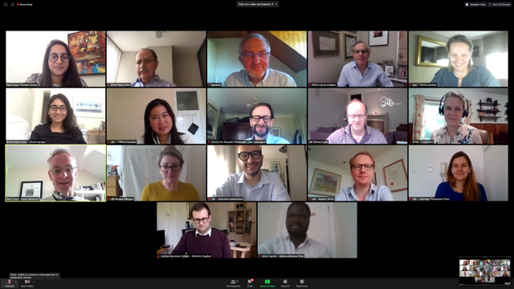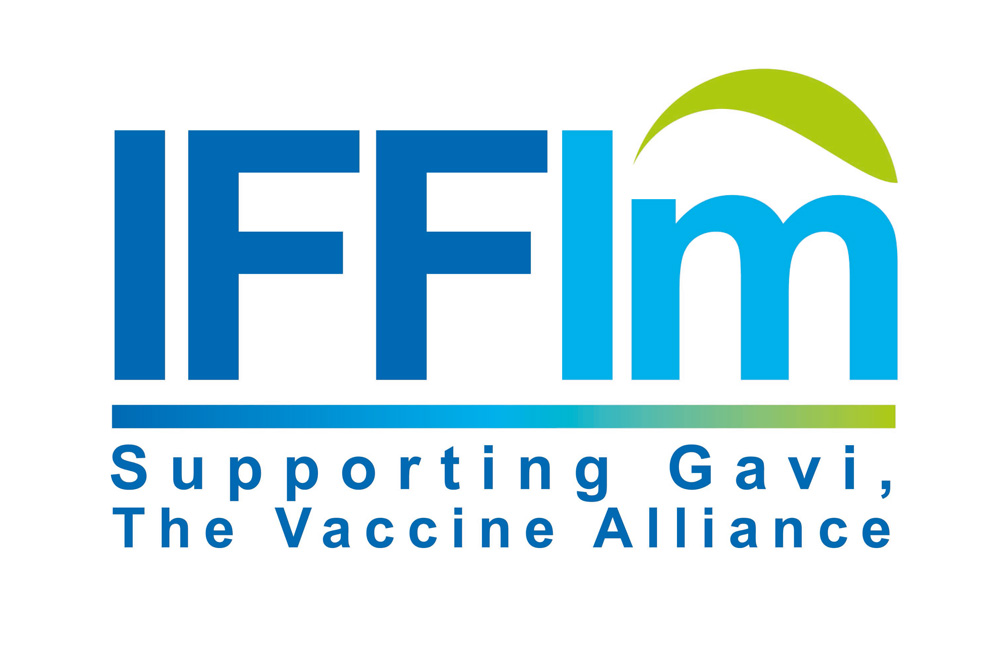Innovative Humanitarian Financing Forum charts way forward
Innovative Humanitarian Financing Forum charts way forward
25 June 2020

Participants join the virtual roundtable discussion
Leaders in business and philanthropy explore pathways to catalyse change through public-private financing. How can public and private sectors work together to increase the scale and scope of funding required to proactively address social causes - and potentially avert crises from future global threats?
Leaders in business and philanthropy explore pathways to catalyse change through public-private financing
As COVID-19 continues to spread, the world is witnessing the speed and scale with which a local health challenge can grow into a global crisis. How can public and private sectors work together to increase the scale and scope of funding required to proactively address social causes—and potentially avert crises from future global threats?
This question is at the center of discussions within the Innovative Humanitarian Financing Forum (IHFF), a roundtable of practitioners and stakeholders in innovative finance initiated by Cyrus Ardalan, IFFIm Board Chair, and Simon Meldrum, Innovative Finance Specialist at the British Red Cross.
The Forum is bringing together representatives of public and private institutions in business, banking, charities and humanitarian organisations to explore how novel financial tools and instruments could expand resources for urgent humanitarian needs, from health emergencies and education to sanitation, hygiene and climate change.
The IHFF convened virtually on May 18 with more than 30 participants from 17 organisations. The second gathering followed up on the outpouring of interest at a kickoff exploratory meeting held in London on March 2.
Utilising innovative finance to close gaps in funding
There’s reason for concern about funding resources, according to IHFF Co-Chair Simon Meldrum, Innovative Finance Specialist with the British Red Cross. “Humanitarian financing as we know it today is not adequately equipped to address the frequency and scale of emergencies our world is facing. COVID-19 has further exposed the fragility of the current system.”
Although traditional humanitarian aid has grown significantly, gaps in funding remain. “The humanitarian sector has an opportunity to look beyond traditional funding to find alternative resources and innovative models to mobilise private capital for emergency response,” said IHFF Co-Chair Cyrus Ardalan, Board Chair of IFFIm, the International Finance Facility for Immunisation (IFFIm), the pioneer of Vaccine Bonds, which accelerate funding for Gavi, the Vaccine Alliance.
LBS research: addressing real-world challenges to innovative finance
To gain perspective, IHFF participants invited MBA students at the London Business School to present findings from research focused on how to improve collaboration to promote greater innovation in humanitarian financing. They focused specifically on the role of coalitions and how to make them action oriented. The students conducted interviews and analysis across diverse public, private and international organisations including Gavi, the World Bank, the Overseas Development Institute, European Civil Protection And Humanitarian Aid Operations (ECHO), the UK’s Department for International Development, Centre for Disaster Protection, International Finance Facility for Education (IFFEd), the Water Supply and Sanitation Collaborative Council, Volta Capital, Aon, Citibank and the law firm of McDermott Will & Emery.
The LBS researchers identified five primary barriers to non-traditional sources of financing and private sector capital. These include a lack of viable investable opportunities; gaps in information and data on investment opportunities; the need for more collaboration between private sector and humanitarian actors; readiness among organisations to participate proactively: and mitigating operational and political challenges that hamper engagement of staff within organisations.
Next steps for IHFF
The roundtable can address these gaps and challenges as IHFF begins to design its structure and focus its purpose.
Mr Ardalan and Mr Meldrum have begun synthesising insights from the participants and research to inform the working group's efforts. “We are now considering next steps in terms of how the roundtable complements other initiatives in the space, and potential partnerships we could initiate."
The IHFF plans to reconvene later this year to go more in-depth into some of the ideas that emerged from the May meeting, with a focus on the outcomes of the LBS study. The Co-Chairs will share a proposal on setting goals and focus, as well as suggestions on formalise a structure and working process going forward.
Share this article
Restricted Access Library
 The material in this Restricted Access Library is intended to be accessed only by persons with residence within the territory of a Member State of the European Union and is not intended to be viewed by any other persons. The material in this Restricted Access Library is provided by IFFIm for information purposes only and the materials contained herein were accurate only as of their respective dates. Certain information in the materials contained herein is not intended to be, and is not, current. IFFIm accepts no obligation to update any material contained herein.
The material in this Restricted Access Library is intended to be accessed only by persons with residence within the territory of a Member State of the European Union and is not intended to be viewed by any other persons. The material in this Restricted Access Library is provided by IFFIm for information purposes only and the materials contained herein were accurate only as of their respective dates. Certain information in the materials contained herein is not intended to be, and is not, current. IFFIm accepts no obligation to update any material contained herein.
Persons with residence outside the territory of a Member State of the European Union who have access to or consult any materials posted in this Restricted Access Library should refrain from any action in respect of the securities referred to in such materials and are otherwise required to comply with all applicable laws and regulations in their country of residence.
By clicking Access restricted content: DYNAMIC-LINK-TEXT I confirm that I have read and understood the foregoing and agree that I will be bound by the restrictions and conditions set forth on this page.
The materials in this Restricted Access Library are for distribution only to persons who are not a "retail client" within the meaning of section 761G of the Corporations Act 2001 of Australia and are also sophisticated investors, professional investors or other investors in respect of whom disclosure is not required under Part 6D.2 of the Corporations Act 2001 of Australia and, in all cases, in such circumstances as may be permitted by applicable law in any jurisdiction in which an investor may be located.
The materials in this Restricted Access Library and any documents linked from it are not for access or distribution in any jurisdiction where such access or distribution would be illegal. All of the securities referred to in this Restricted Access Library and in the linked documents have been sold and delivered. The information contained herein and therein does not constitute an offer for sale in the United States or in any other country. The securities described herein and therein have not been, and will not be, registered under the U.S. Securities Act of 1933, as amended (the "Securities Act"), and may not be offered or sold in the United States except pursuant to an exemption from, or in a transaction not subject to, the registration requirements of the Securities Act and in compliance with any applicable state securities laws.
Each person accessing the Restricted Access Library confirms that they are a person who is entitled to do so under all applicable laws, regulations and directives in all applicable jurisdictions. Neither IFFIm nor any of their directors, employees, agents or advisers accepts any liability whatsoever for any loss (including, without limitation, any liability arising from any fault or negligence on the part of IFFIm or its respective directors, employees, agents or advisers) arising from access to Restricted Access Library by any person not entitled to do so.
"Relief" for mothers in Bayelsa state as malaria vaccine makes waves
07 November 2025
